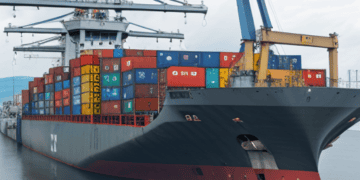In a significant development aimed at bolstering the resilience of supply chains within the European Union, the European Commission has unveiled the Single Market Emergency Instrument. This strategic move is designed to enhance the EU’s capabilities in managing supply chain disruptions, drawing inspiration from similar initiatives previously undertaken by global counterparts such as the United States and Japan.
The genesis of this initiative can be traced back to the challenges encountered during the COVID-19 pandemic, notably the dispute with pharmaceutical giant AstraZeneca regarding delays in vaccine distribution across the EU’s 27 member states. This situation underscored the critical need for a more robust framework to navigate supply chain emergencies effectively.
Despite the ambitious goals of the European Commission’s proposal, the negotiation process led to a moderation of certain measures, reflecting concerns raised by the business community. These concerns centered around the potential for the proposed regulations to compel companies to void existing commercial contracts and disclose proprietary information, thus sparking a debate on balancing regulatory oversight with business autonomy.
The finalized political agreement introduces a system where the Commission possesses the authority to make priority-rated requests for the procurement of essential goods or services during crises. Companies receiving these requests have the discretion to comply, with the provision of liability waivers by the Commission to mitigate any contractual repercussions.
Moreover, the agreement enhances the collaborative procurement capabilities of EU member states, allowing for a unified approach in acquiring goods or services deemed critical in crisis situations. However, it also maintains a balance by permitting companies to decline data requests regarding their inventory levels, provided they furnish a justification for such refusals.
Central to the legislation is the establishment of a three-tier alert system designed to streamline the EU’s response to potential threats. This system delineates specific stages of vigilance and emergency, facilitating a coordinated response from national governments to tackle imminent challenges effectively.
The passage of this legislation marks a pivotal step towards reinforcing the EU’s internal market against future crises. As highlighted by European Parliament negotiator Andreas Schwab, this development signifies a proactive approach to enhancing the EU’s preparedness and resilience in facing supply chain disruptions.
This strategic initiative not only reflects the European Union’s commitment to safeguarding its supply chains but also sets a precedent for international cooperation and adaptability in the face of global challenges. As the EU moves forward with this legislation, the focus remains on building a more secure and transparent supply chain infrastructure, capable of withstanding the complexities of the modern economic landscape.
The implications of this new framework extend beyond immediate crisis management. It underscores a broader shift towards greater transparency and accountability within supply chain operations. By granting the European Commission the power to request data from companies regarding stock levels, albeit with an option for companies to decline if reasons are provided, the EU is signaling a move towards more open and communicative trade practices. This aspect is particularly crucial in an era where supply chain disruptions can have far-reaching effects on economies and societies.
Furthermore, the legislation’s emphasis on joint procurement strategies by EU countries represents a significant step towards enhancing collective buying power and efficiency. This approach not only aims to secure critical supplies during emergencies but also fosters a sense of unity and shared purpose among member states. By pooling resources and coordinating procurement efforts, the EU can achieve better outcomes in terms of cost, quality, and timeliness of essential goods and services.
The establishment of a tiered alert system is another key feature of this legislation, offering a structured and scalable response mechanism to potential supply chain threats. This proactive stance enables the EU to transition smoothly between different levels of readiness and response, ensuring that both governments and businesses can adapt quickly to evolving situations. The tiered system also facilitates better communication and coordination among member states, ensuring a unified approach to managing supply chain risks.
As the European Union embarks on this journey to strengthen its supply chains, the role of dialogue and collaboration with the business community remains paramount. The initial concerns raised by businesses about the potential impact of the legislation on commercial contracts and confidentiality highlight the need for ongoing engagement and consultation. Balancing regulatory objectives with the operational realities and competitive pressures faced by companies will be critical to the success of the Single Market Emergency Instrument.
In conclusion, the Single Market Emergency Instrument represents a forward-thinking approach to supply chain management within the European Union. By addressing the lessons learned from past crises, such as the COVID-19 pandemic, the EU is positioning itself to better manage future disruptions. This legislation not only aims to protect the integrity and functioning of the single market but also contributes to the global conversation on building more resilient and sustainable supply chains. As this new framework is implemented, it will be essential to monitor its impact on businesses, trade flows, and the broader economy, ensuring that
the EU remains a competitive and reliable partner in the global trade ecosystem.
Catch the latest in supply chain news on The Supply Chain Report. Visit ADAMftd.com for free international trade tools.
#EU #SupplyChainResilience #SingleMarketEmergencyInstrument #CrisisManagement #AstraZeneca #EURegulations #Procurement #SupplyChainSecurity #Collaboration #Transparency #EmergencyResponse #BusinessCommunity #Sustainability #EconomicRecovery

















